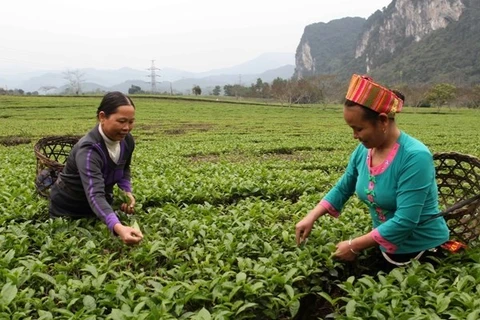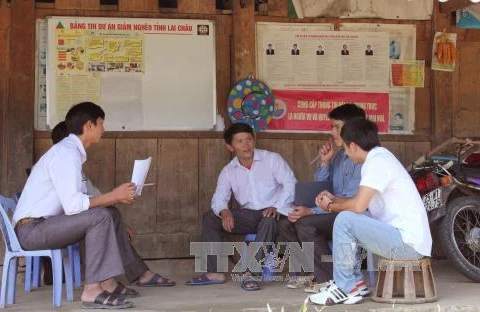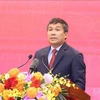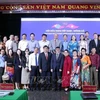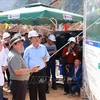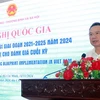 The working session between the Steering Committee for the Northwest Region and the National Assembly’s Council for Ethnic Affairs on February 17 (Photo: VNA)
The working session between the Steering Committee for the Northwest Region and the National Assembly’s Council for Ethnic Affairs on February 17 (Photo: VNA) Yen Bai (VNA) – The northwest region of Vietnam recorded stable socio-economic development in 2016 with the household poverty rate dropping by 3.4 percent from the previous year.
The Steering Committee for the Northwest Region reported the situation in the region to a delegation of the National Assembly’s Council for Ethnic Affairs at a working session in Yen Bai on February 17.
The region comprises 12 provinces (Ha Giang, Lao Cai, Yen Bai, Lai Chau, Dien Bien, Son La, Hoa Binh, Cao Bang, Bac Kan, Lang Son, Phu Tho and Tuyen Quang) and 21 western districts of central Thanh Hoa and Nghe An provinces.
Over 62 percent of the region’s population of 11 million are ethnic minorities.
The Steering Committee reported that the local material and spiritual life continued to be improved last year thanks to the enforcement of many policies such as those on infrastructure building, medical and educational services promotion, water supply, legal aid, and resident resettlement.
All communes in the region have also far been accessible by car while 92 percent of the households have been connected to electricity.
However, transport infrastructure has yet to meet the development demand, the committee admitted, adding that unplanned migration still continued, involving nearly 4,500 households between 2011 and 2016.
The Committee asked for help in manpower training and job provision, and more investment in transport facilities, especially roads connecting villages and linking communes with provincial and national roads. It also urged a law on ethnic groups to be built.
Chairman of the NA Ethnic Affairs Council Ha Ngoc Chien spoke highly of the committee’s efforts, stressing that the northwest remains the poorest region in Vietnam.
He requested the committee to review the effectiveness of existing policies and programmes targeting mountainous regions and ethnic minority groups, and suggest ideas about developing human resources and training ethnic minority officials.-VNA
VNA
